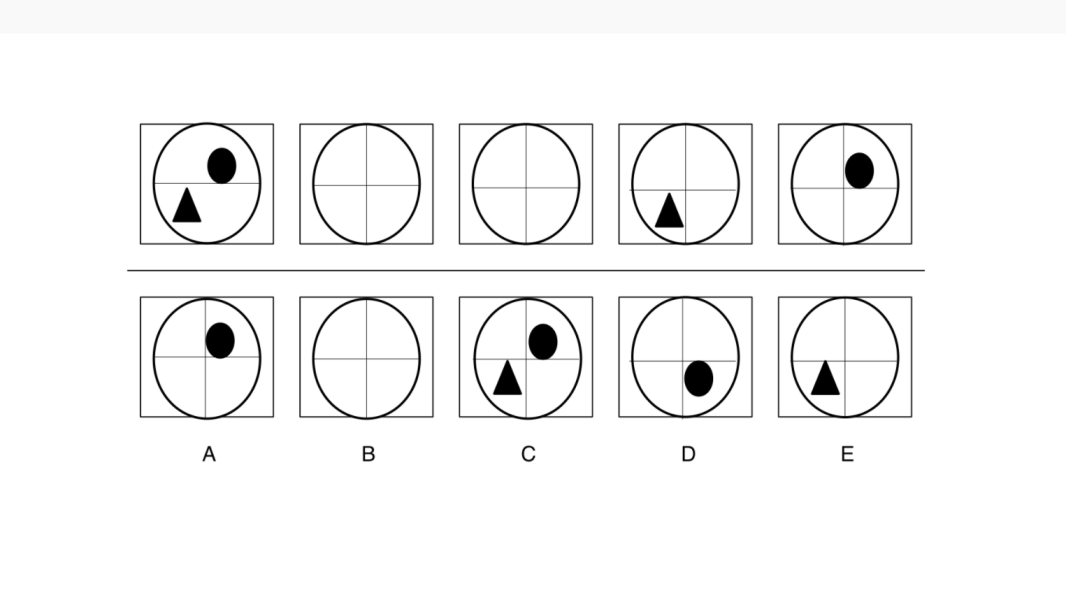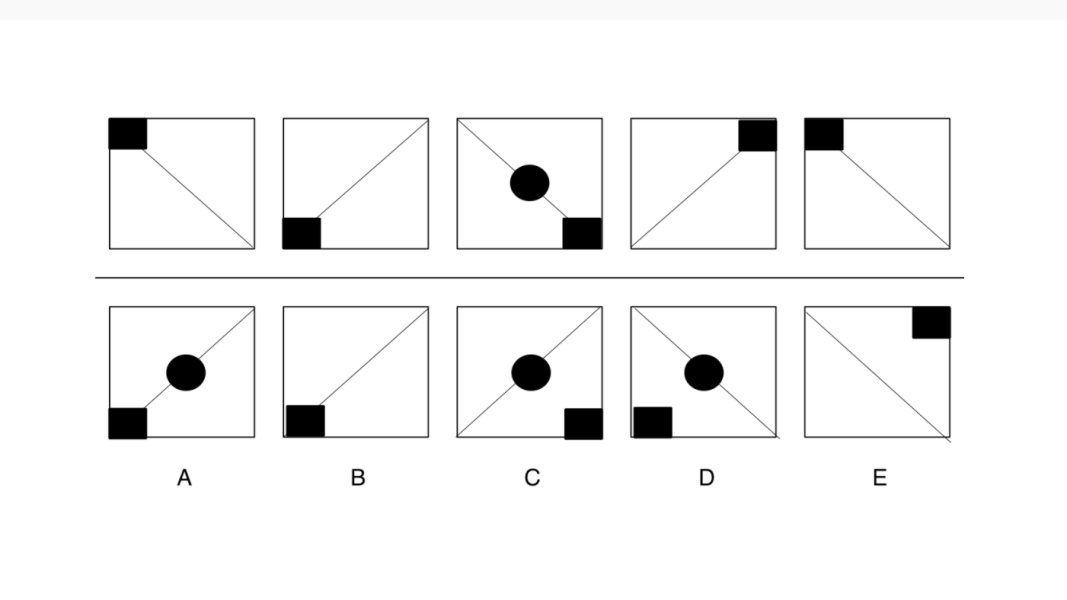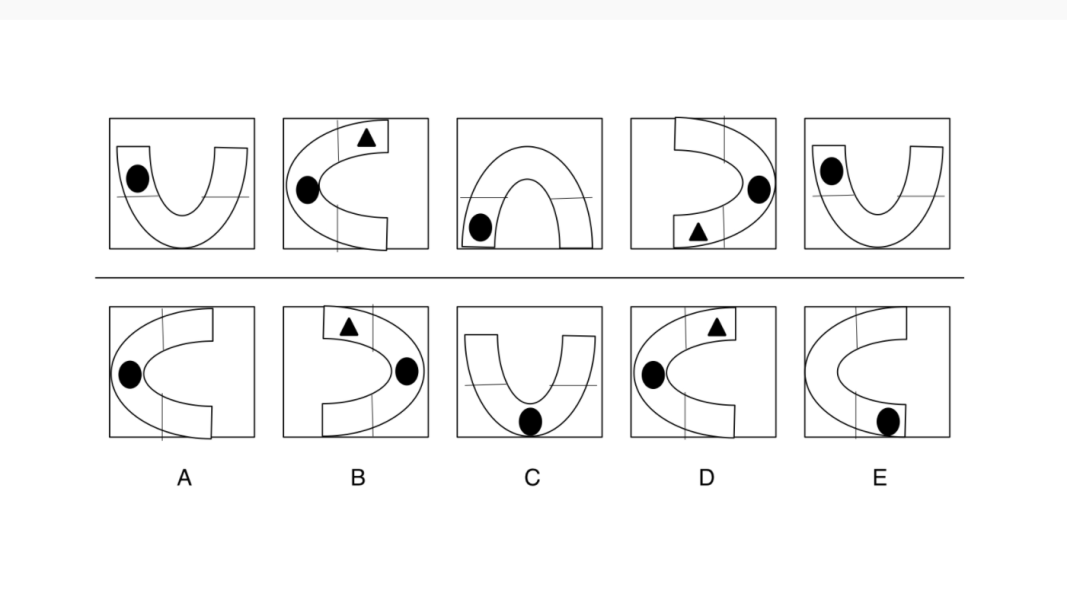What is abstract reasoning?
Abstract reasoning, or abstract thinking, is the ability to understand and reason unfamiliar concepts in the absence of physical data, concrete phenomena, or specific instances. Abstract reasoning involves problem-solving, logical, and strategic thinking.
What is an abstract reasoning test?
An abstract reasoning test is an assessment that uses shapes and patterns to assess your problem-solving skills and ability to spot logical series. For example, you might need to select which image completes a sequence, is missing from the overall picture, or doesn’t correlate to the other images shown.
The answers on an abstract reasoning test are usually multiple-choice, but don’t be fooled into thinking this makes the process easier — you need to work quickly and accurately to identify the rule governing the pattern and complete all of the questions on the test.
And to make things even more challenging, you will normally have a minute or less to answer each question.
Abstract reasoning tests are common for research, software development and engineering roles.
Why do employers use abstract tests?
Employers use abstract reasoning tests to assess candidates’ cognitive abilities, including their capacity for problem-solving, pattern recognition, and logical thinking. These tests help employers evaluate candidates’ potential to learn new concepts, adapt to unfamiliar situations, and think creatively. By presenting candidates with non-verbal, visually-based questions, abstract tests measure their ability to identify patterns, relationships, and trends within abstract shapes, symbols, or diagrams. Employers rely on abstract reasoning tests to identify candidates who demonstrate strong analytical skills, as these abilities are essential for roles that involve complex problem-solving, innovative thinking, and strategic decision-making.
Most commonly it’s used in industries such as technology and engineering, as it helps give employers a better understanding of which candidates have the sharp minds and critical thinking skills needed to succeed in such fields.
The abstract reasoning test is non-verbal and non-numerical; this means that what you’ll be presented with is shapes and patterns. The test questions will require you to identify the relationship between the images, or complete a sequence by determining what it is that connects the images.
You’ll answer by selecting the multiple-choice response you believe to be correct, and you’ll have around a minute or less to answer each question.
As you progress through the test, the questions tend to get more challenging, so it’s wise to leave a bit longer for problems towards the end of the test if you can.
Once the test has finished, your score will be calculated and then compared to your peers, or to a normative group. This helps the employer to see how hard the test you took was, and how well you fared compared to others in the room, or a group of people who have already successfully taken the test.
How best to prepare for an abstract test
Preparing for the abstract reasoning test is really important — particularly as the test may throw up challenges and problems you’ve not encountered before.
First, we recommend finding out as much information as you can from the employer or recruiter who’s setting the test. Information such as the test publisher can help you get one step ahead of the rest.
Practising past tests is the best way you can familiarise yourself with the wording and format of the questions, the speed at which you’ll need to answer, and the skills you need to hone.
We always recommend setting up a quiet working environment to take mock tests; one that’s free from distractions and noise. And it’s really important to time yourself — a significant part of the challenge is the speed at which you’ll need to answer every question.
Once you’ve completed a mock test, it’s time to see how you did. Take confidence from your strengths and note down your weaker areas so you know where to focus your energies.
Mock tests are the best way to prepare yourself for taking a real abstract reasoning test. But there are lots of other ways you can inject some variety into your preparation and ensure you’re working the areas of the brain you need to engage in the test.
Try brain-training games, puzzles or shape-based challenges; anything that requires you to solve problems under pressure. Inductive reasoning and diagrammatic reasoning tests are also worth practising, since the questions you’ll encounter on these tests are very similar.
You can find more tips here on how to succeed at the abstract reasoning test.
Common abstract reasoning test publishers
Below is a list of the major publishers of abstract reasoning tests. Click the links to find out more about each publisher.
Enquiring who publishes your test can give you an advantage, as you can familiarise yourself with the particular phrasing and formatting. That said, practising any type of abstract reasoning test will be beneficial.














